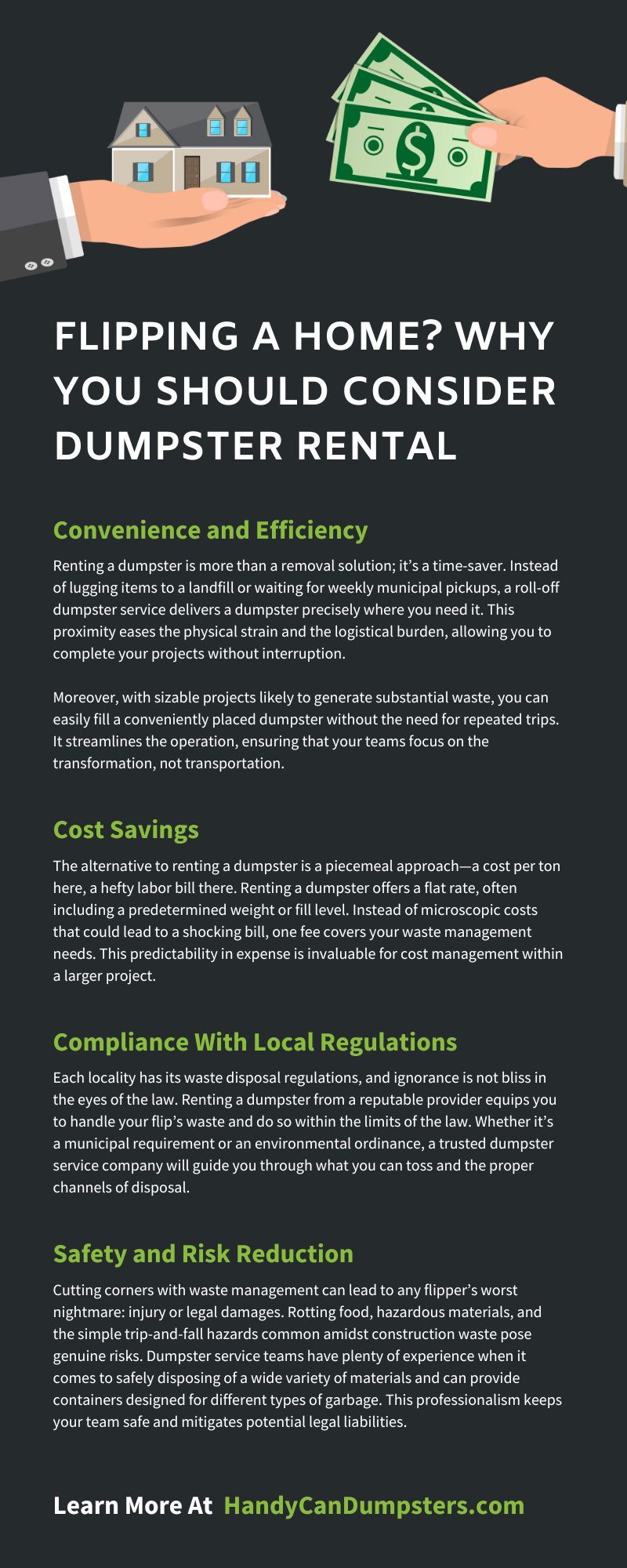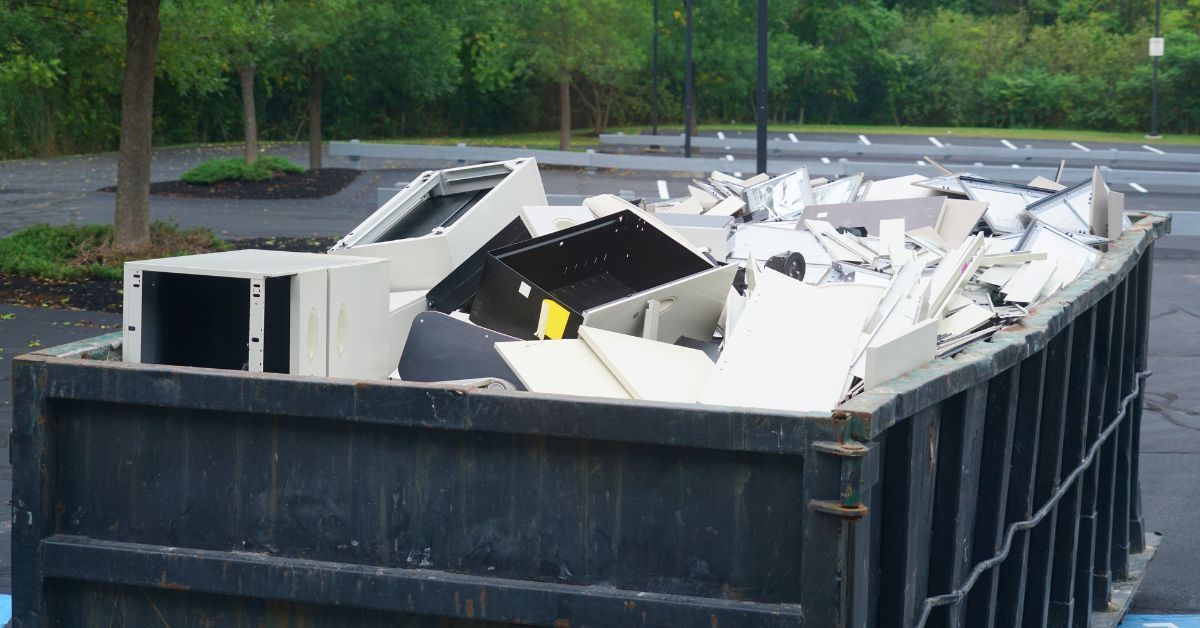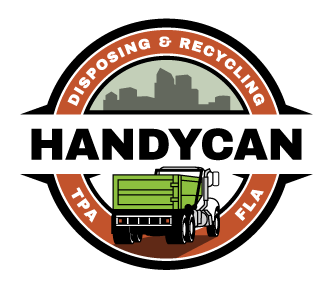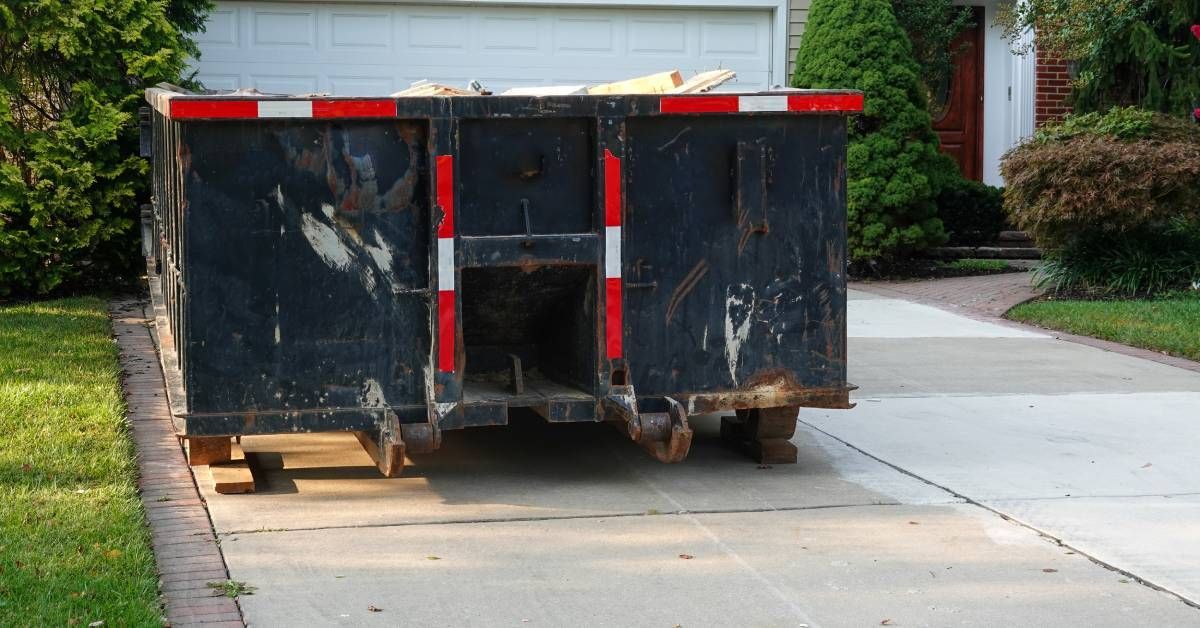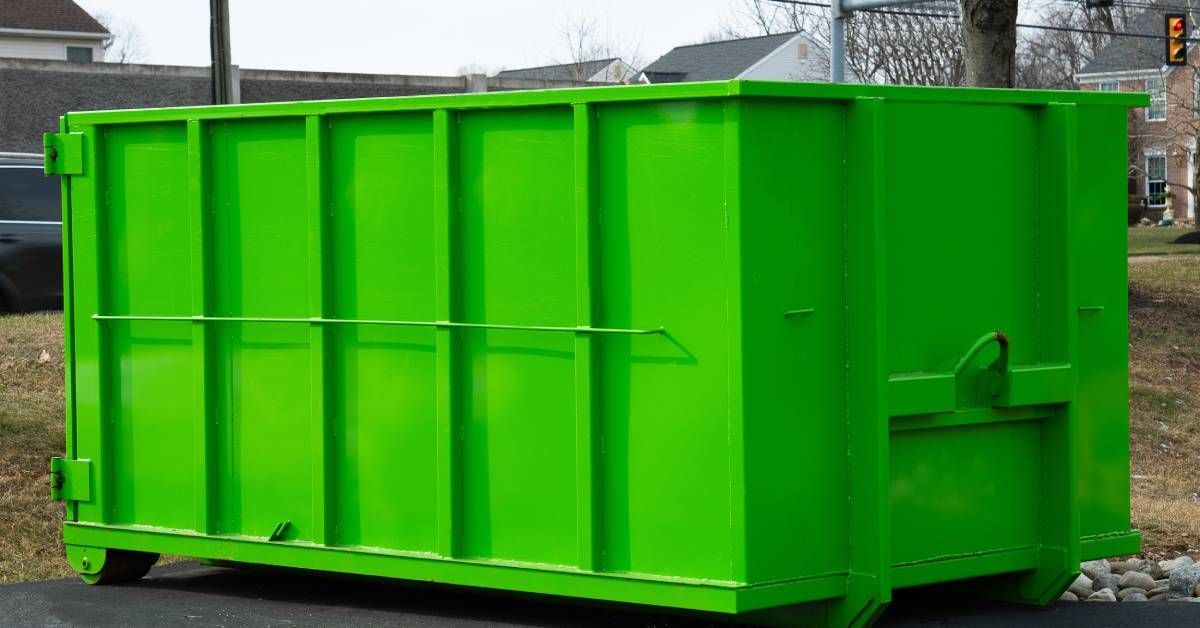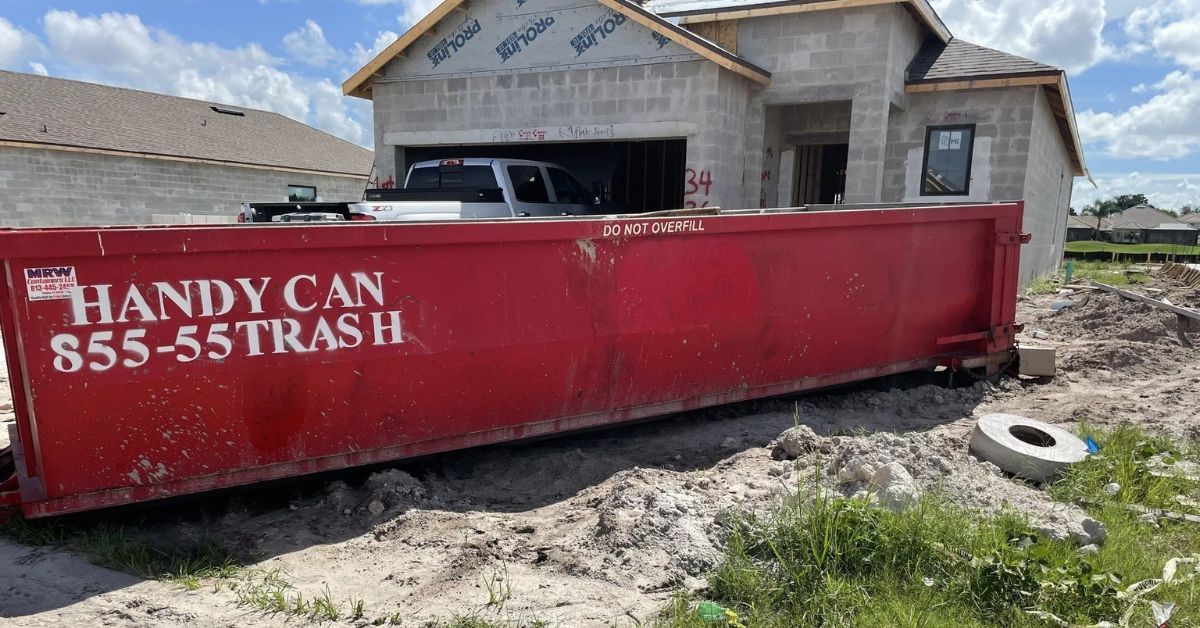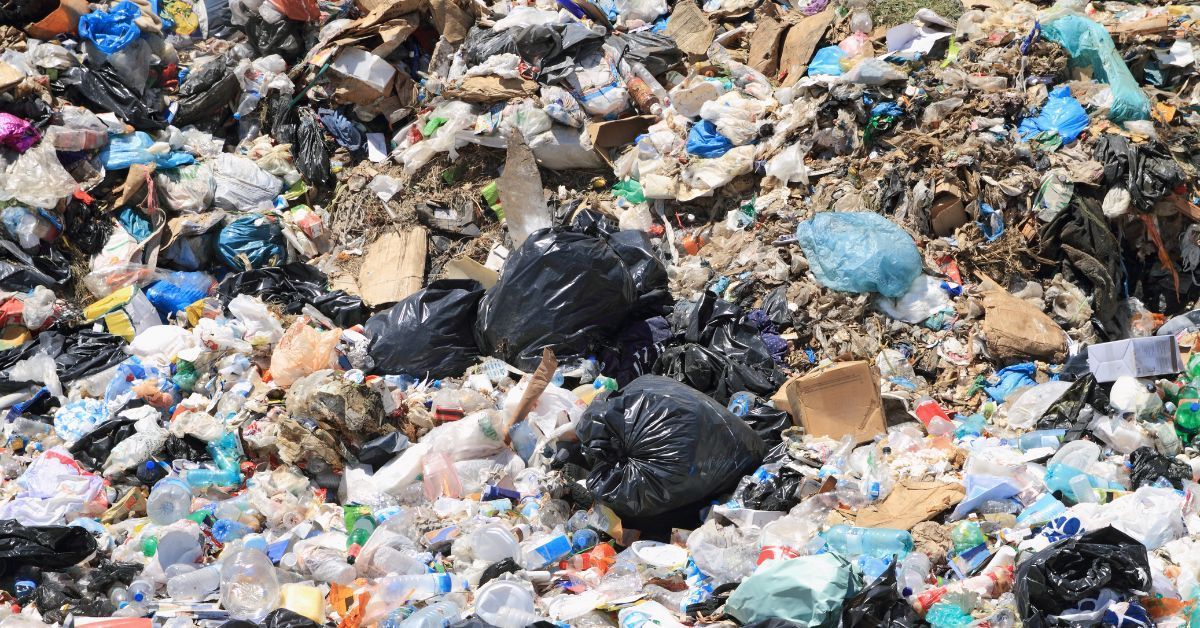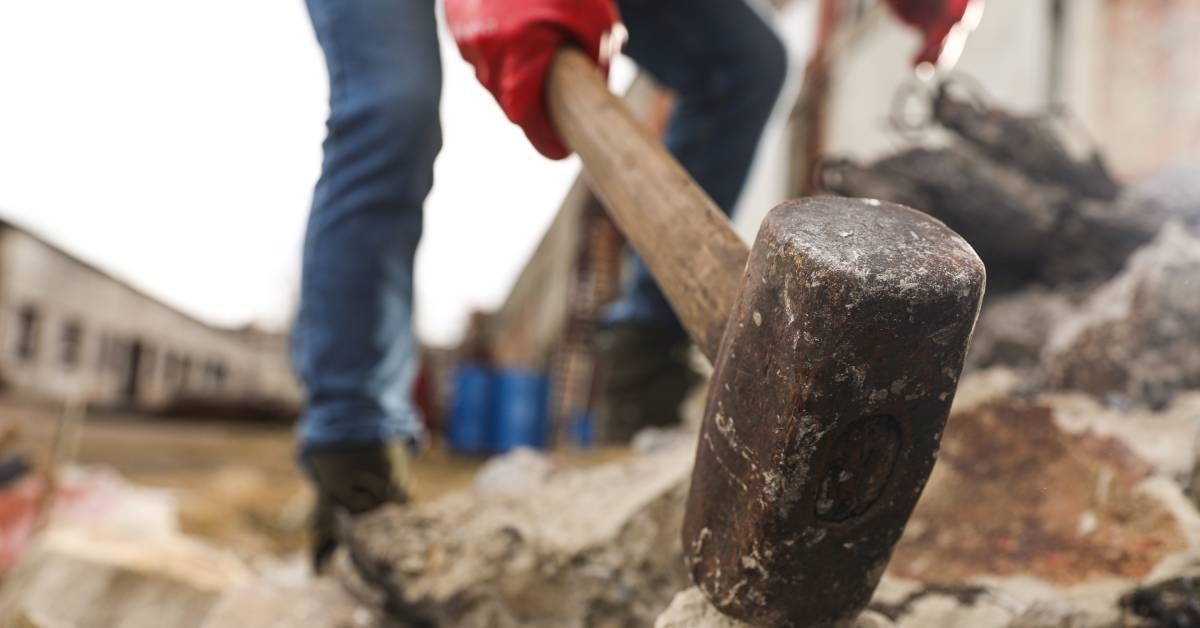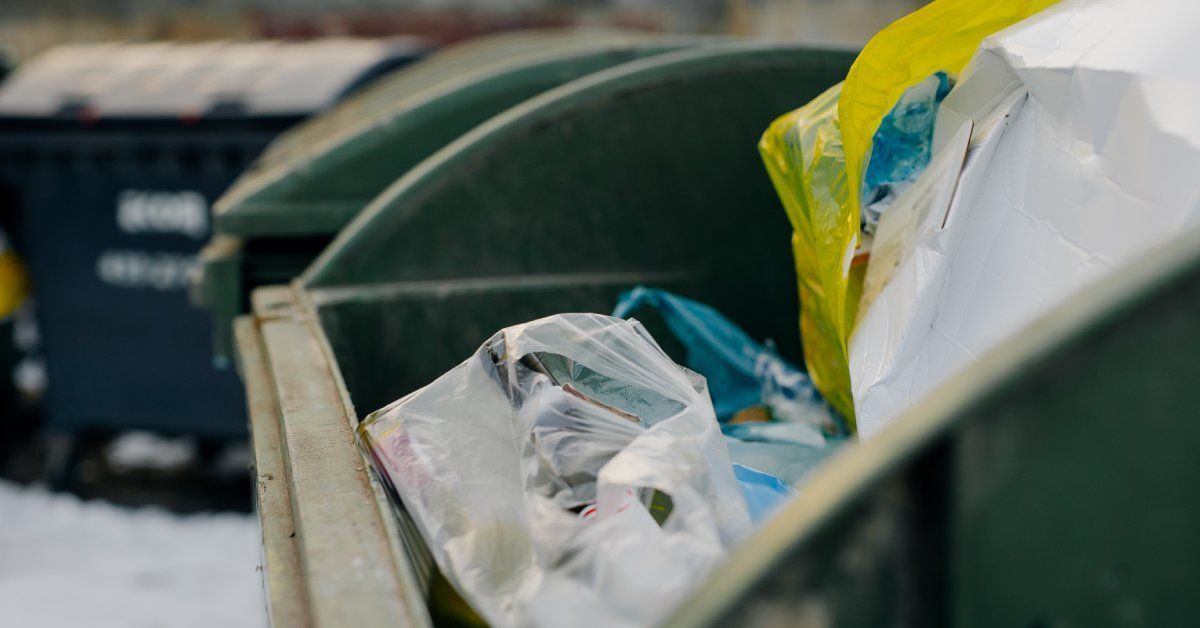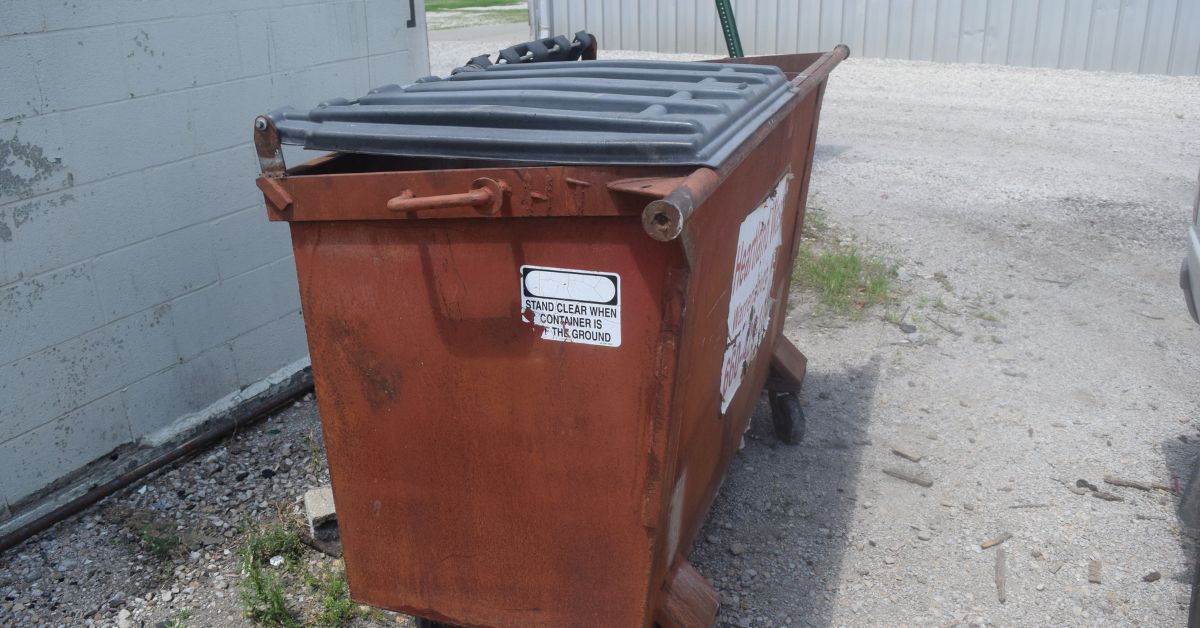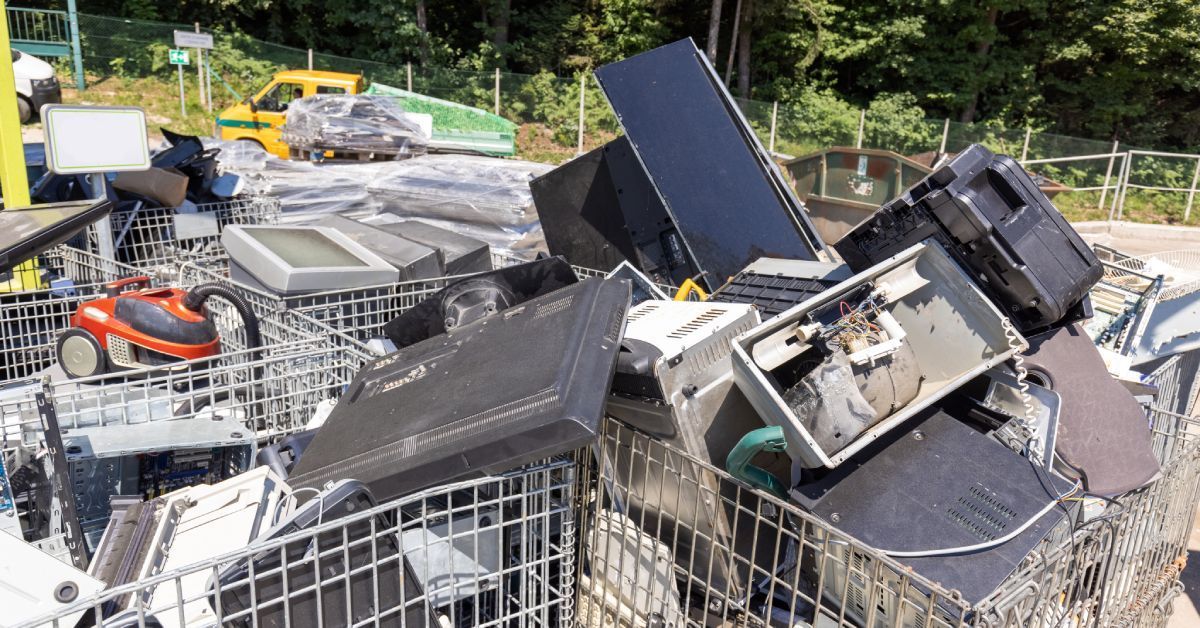Flipping a Home? Why You Should Consider Dumpster Rental
Landing on the threshold of a new venture, the world of house flipping opens its doors wide, inviting you to enter the realm of real estate’s most daring. As you prepare to breathe new life into a property, you’ll soon get to grips with the sheer amount of debris, old fixtures, and general rubble you’ll have to handle.
The adage “out with the old, in with the new” seems tailor-made for the flipper’s mantra. Nowhere is this idea more apt than the art of removing old resident’s belongings to pave the path for the shiny and new. But how you manage the “out with the old” part could significantly impact your flip’s efficiency, safety, and even legal standing. If you’re flipping a home, this is why you should consider renting a dumpster.
The Benefits of Home Flipping
There are several benefits house flippers will experience when they use roll-off dumpster services from Handy Can during the process. Let’s explore these benefits!
Convenience and Efficiency
Renting a dumpster is more than a removal solution; it’s a time-saver. Instead of lugging items to a landfill or waiting for weekly municipal pickups, a roll-off dumpster service delivers a dumpster precisely where you need it. This proximity eases the physical strain and the logistical burden, allowing you to complete your projects without interruption.
Moreover, with sizable projects likely to generate substantial waste, you can easily fill a conveniently placed dumpster without the need for repeated trips. It streamlines the operation, ensuring that your teams focus on the transformation, not transportation.
Cost Savings
The alternative to renting a dumpster is a piecemeal approach—a cost per ton here, a hefty labor bill there. Renting a dumpster offers a flat rate, often including a predetermined weight or fill level. Instead of microscopic costs that could lead to a shocking bill, one fee covers your waste management needs. This predictability in expense is invaluable for cost management within a larger project.
Compliance With Local Regulations
Each locality has its waste disposal regulations, and ignorance is not bliss in the eyes of the law. Renting a dumpster from a reputable provider equips you to handle your flip’s waste and do so within the limits of the law. Whether it’s a municipal requirement or an environmental ordinance, a trusted dumpster service company will guide you through what you can toss and the proper channels of disposal.
Safety and Risk Reduction
Cutting corners with waste management can lead to any flipper’s worst nightmare: injury or legal damages. Rotting food, hazardous materials, and the simple trip-and-fall hazards common amidst construction waste pose genuine risks. Dumpster service teams have plenty of experience when it comes to safely disposing of a wide variety of materials and can provide containers designed for different types of garbage. This professionalism keeps your team safe and mitigates potential legal liabilities.
Factors To Consider When Renting a Dumpster for Home Flipping
Before you call Handy Can and book the dumpster, there are various factors to consider.
Size and Capacity
The size of your dumpster is not a one-size-fits-all decision. Consider the scale of your project and anticipate the waste it will generate. A dumpster that is too small can create overages or the need to rent a second container, while one that is too large could be an unsightly and unnecessary expense. An experienced company should be able to help you calculate the right capacity based on the job’s scope.
Renting Period
Timing is everything, and this couldn’t be truer for dumpster services. Plan for a long enough period that accommodates unexpected delays without unnecessarily extending it, which adds to your costs. Some of the best companies offer flexible terms, including the ability to extend your dumpster renting terms at a moment’s notice should you need it.
Placement and Accessibility
Where you put your dumpster impacts the practicalities of waste disposal and the overall efficiency of your project. It needs to be close enough to the action that you don’t waste time walking back and forth but not so near as to become a safety hazard. Ensure that the designated area is clear and accessible for both delivery and pickup.
Waste Disposal Regulations
Different materials may require different methods of disposal, and some may be completely prohibited from landfill or municipal waste streams. Educate yourself about local waste disposal regulations, and communicate any specific disposal needs with your dumpster company. This cooperation ensures that your project proceeds unimpeded.
Tips for Renting a Dumpster for Home Flipping
Use the below tips to help you find the right dumpster.
Hire a Reputable, Local Dumpster Company
Don’t hire the first dumpster service company you find. Take the time to sift through local options, reading reviews, and checking qualifications. Look for responsiveness, good customer service, and transparency about costs and policies. Remember, this is a partnership as much as a transaction.
Determine the Right Size and Type of Dumpster
Consult with potential companies about your project’s size and the types of waste you’ll be dealing with. Do you need a larger roll-off style for extensive renovations, or will a smaller debris box suffice for a more modest upgrade? Perhaps you need one with a top lid for biohazards or one designed to house especially heavy materials. The right type contains the waste in the safest, most odor-free way, reflecting your professionalism to neighbors and potential buyers.
Plan for Waste Disposal
Waste disposal might not rise to the top of the list in the adrenaline rush of flipping, but it should. By scheduling the dumpster’s arrival well in advance and planning where it will go, you can lay the groundwork for a smoother, faster, and more efficient operation. Be prepared—and maybe even a little excited—to see the freedom a well-executed waste management plan brings.
Dispose of Hazardous Materials Properly
The house waste could potentially contain hazardous materials. Your dumpster company can guide you on what they can accommodate and what requires special handling. This step ensures your safety and the environment’s well-being, as improperly disposed hazardous waste can seep into water sources or damage local ecosystems.
Closing Thoughts
Entering the world of home flipping is a bold move, but it’s not for the faint of heart—or those lacking a plan. Considering a dumpster rental as a foundational part of your flipping strategy, you’re setting your project up for success. The benefits are clear.
